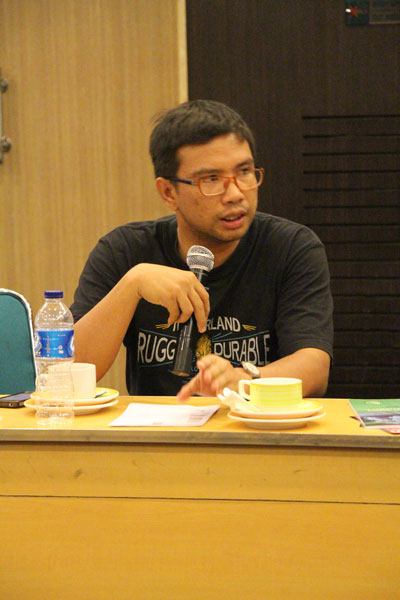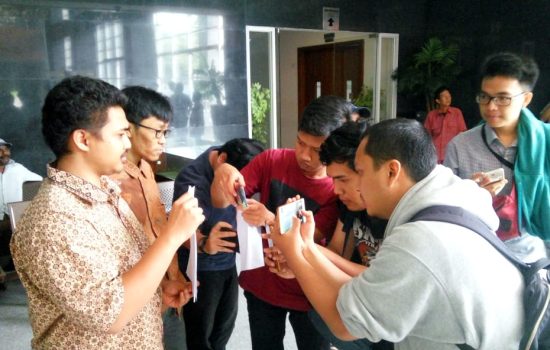Finally the Aceh’s House of Representatives, on Saturday (27/09) predawn, passed the Regional Regulation on Islamic Sharia which will be in effect not only to Moslem but also Non-Moslem citizens. The Regional Regulation that regulates Islamic Criminal Law or Qanun Jinayat was approved by acclamation in the Plenary Session of Aceh’s House of Representatives, which was attended by 22 of 69 members of the Aceh’s House of Representatives.
Commenting about the Qanun Jinayat, Supriyadi Widodo Eddyono, the Executive Director of Institute for Criminal Justice Reform (ICJR) said that the Qanun contradicts the punishment system in Indonesia, especially since the regime of our punishment law has strictly denied corporal punishment. “This is a fact that actually implementing physical punishment which is degrading to the human dignity is still being carried out in Indonesia,” said Supriyadi.
The Qanun among other include sanction for those who conducted Jarimah (act which is prohibited in accordance with Islamic Sharia and punishable by huhud or takzir) and alcoholic beverages, maisir (gambling), khalwat (being two person who are not mahram together in a private space), ikhtilath (making out in public or private space), adultery, sexual harassment, rape, qadzaf (to accuse someone of doing adultery without able to prove it by providing four witnesses), liwath (same sex sexual intercourse), and musahaqah.
Those who violate the Qanun are punishable by various punishments, for instance the Qanun Jinayat for perpetrator is punishable by punishment of 10 to 200 times of whipping. There are also punishments of fine in a form of 200 to 2.000 gram of pure gold or 20 months to 200 months of imprisonment. The lightest punishment is for pervert, and the heaviest punishment is for child rapist.
ICJR recorded that the whipping practice has been performed since 2002 in Aceh for criminal acts against Qanun which regulates the way to properly dress up, Qanun Khalwat which prohibits a man and a woman being together alone in a private place; Qanun maisir which regulates alcohol consumption; and Qanun Khamar which prohibits gambling.
From Anti-Torture aspects, ICJR assesses the forms of punishment in the Qanun as a form of cruel punishment, inhumane, and degrading to the human dignity, and contradicts the Anti-Torture Convention that has been ratified by the Indonesian Government. Supriyadi said, “Periodically the international human rights agencies strictly reminding Indonesia that the practice of whipping punishment that is only implemented in Aceh as a form of cruel punishment (corporal punishment)”. According to Supriyadi, this punishment is not in accordance with Anti-Torture Convention (Article 16) and International Covenant on Civil and Political Rights (Article 7). “This punishment violates the civil and political rights,” he asserted.
Besides that the Qanun puts women into another vulnerable group that is most likely has the potential to be subjected to the punishment. Because the implementation of sharia law and law procedure by Wilayatul Hisbah (WH) also have the potential of discriminative and tend to use ways that are inhumane and gender bias. In addition, sharia provision (Qanun) does not regulate about legal aid (a fair trial) for those who are subjected to whipping punishment.
In the Qanun, Islamic Law implementation for Non-Moslem is regulated in Article 5 Point b and c. Pursuant to point b, “every religious person that is not a Moslem who has performed Jarimah (velony) in Aceh together with a Moslem and choose and voluntarily summiting herself/himself to the law of Jinayat.” And pursuant to point c, “every religious person who is not a Moslem who has performed Jarimah in Aceh that are not regulated by the Indonesian Criminal Code or criminal provisions outside the Indonesian Criminal Code, but regulated by this Qanun.”
Due to the plenty of notes on the Qanun, ICJR urges the Government in this matter the Minister of Interior-Affairs to revise the existing regulation concerning the implementation of Qanun Jinayat in Aceh. Indonesia must be consistent in implementing punishment system that denies physical punishment, also urges for the sake of a just and civilized humanity to remove any kinds of cruel punishment, inhumane, and corporal punishment.




